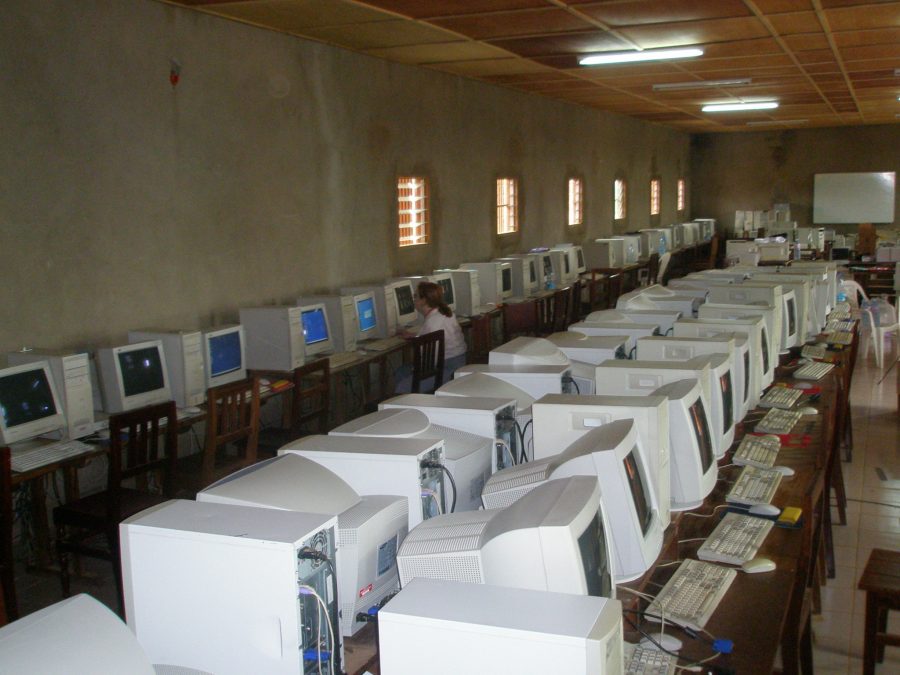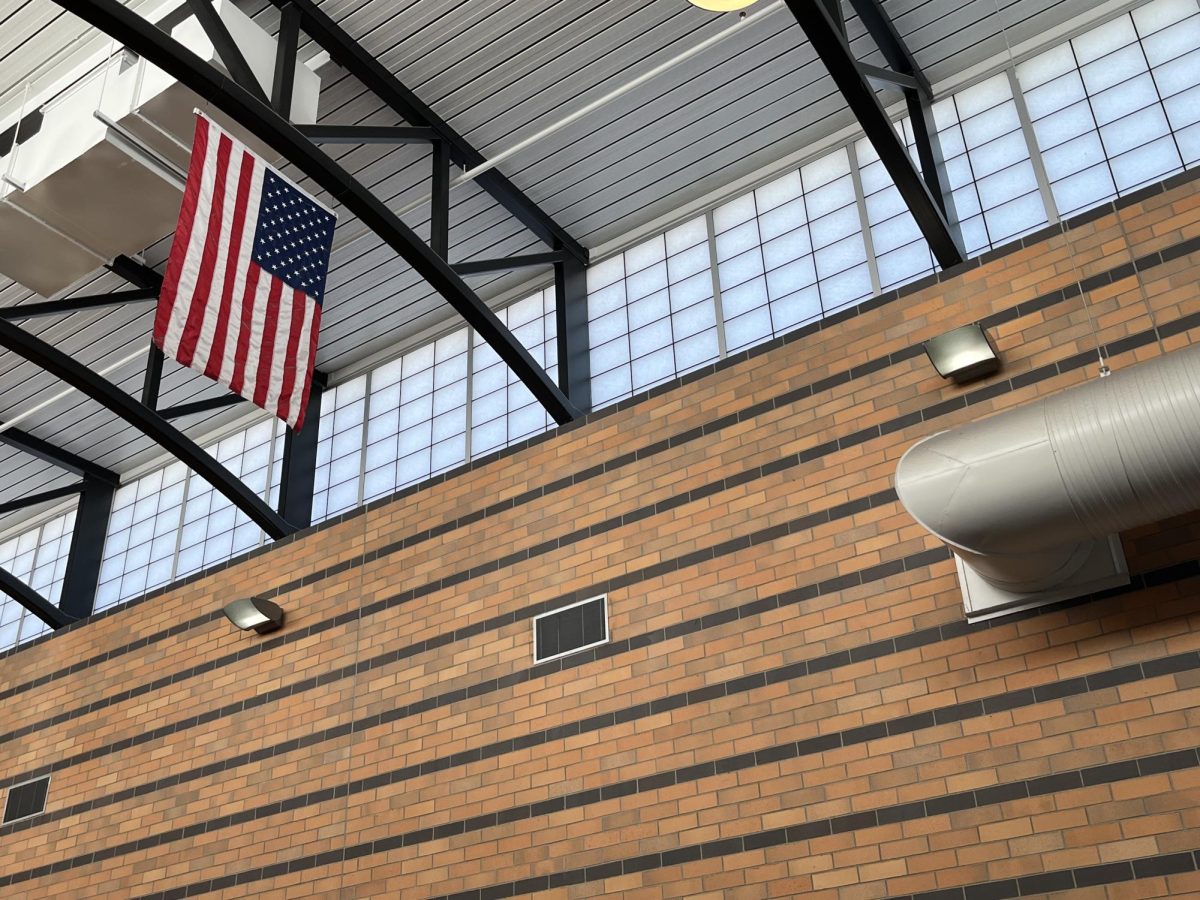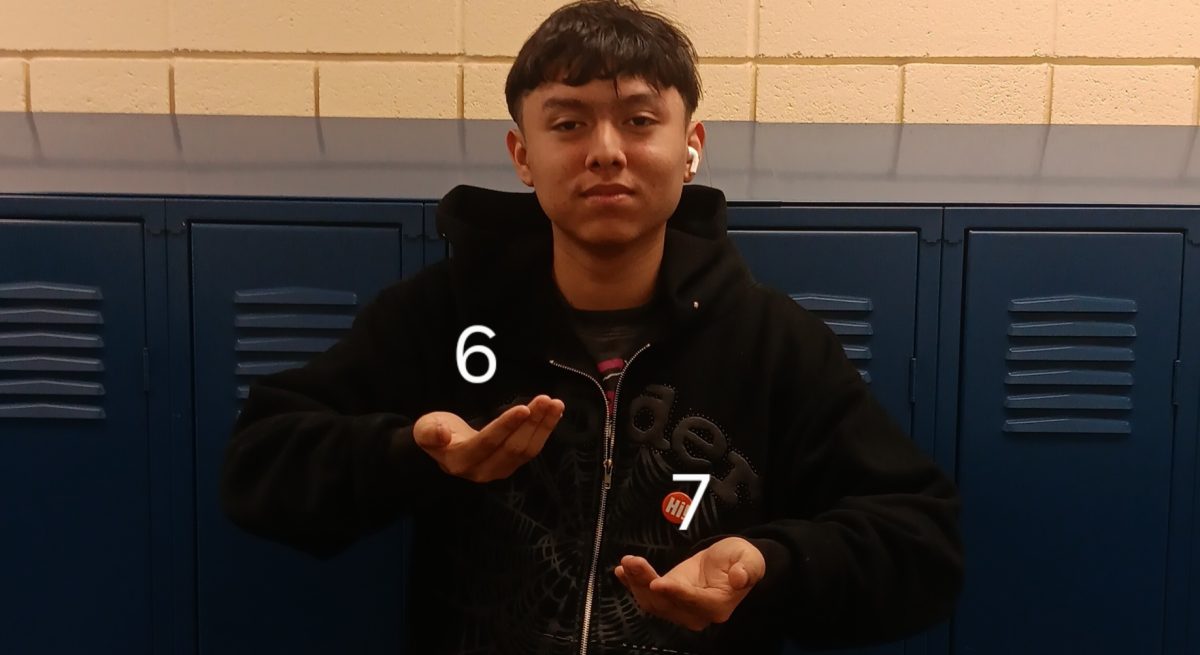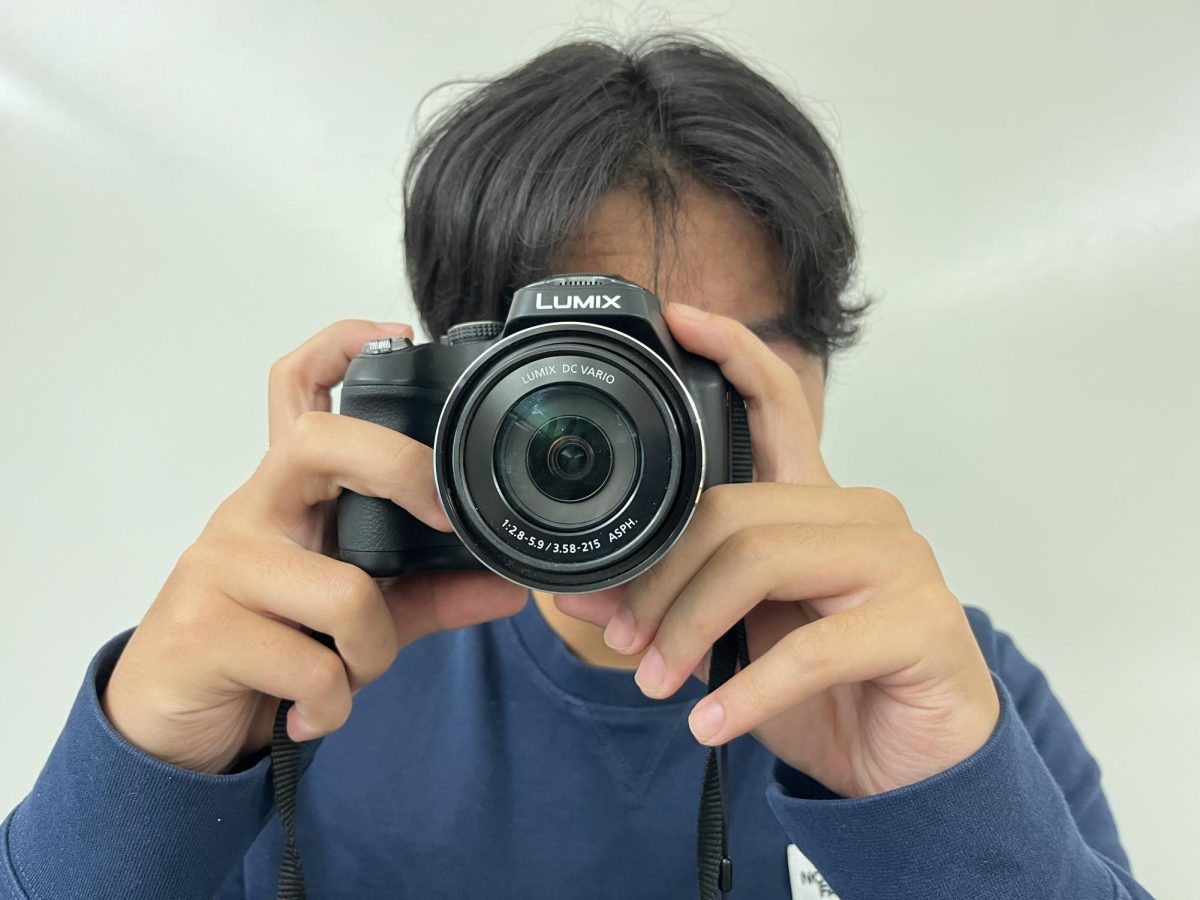Instructor Lydia Wonget’s classroom is filled with high school age students working independently at their computers that line the concrete walls — a typical American classroom. Outside, though, is an entirely different world. Bush taxis packed with residents rumble down the roads. Open backed cars bring pounds and pounds of bananas into the city. A young boy carries a basket of yams on his head down a long dirt road. This is not Holland, Michigan, but the northwest region of Cameroon, Africa. The surprising technology in the classroom comes from shipments organized by the Cultural Technological Environmental Exchange (CTEE), a club run solely by West Ottawa students.
Of course, the program started small. In his first year of teaching, a group of students approached Instructor Mike Jaeger. They wanted to start an organization to send food and clothing to Africa. Jaeger already had previous connections in the West African nation of Cameroon after serving in the United States Peace Corps for three years, so that is where the group decided to focus their mission. Sr. Matt Munson, suggested doing something unique. He proposed the idea of repairing and sending outdated computers from local companies to the country.
Now that the organization had a goal, the students had to go to the school board to receive permission to travel to Cameroon alongside their first shipment of computers. There were, of course, obvious concerns about sending students to West Africa, especially to a nation where a majority of the population is below the poverty line.
The students crafted an impressive initiative and gained the support of the superintendent and president of the board of education despite initial worry. CTEE planned to travel to Cameroon in June of 1998.
Since that initial trip, Jaeger has travelled ten times with West Ottawa students. Students installed over 3,000 computers in Cameroon during those trips with as many as 100,000 students having access to the computers. Some students have gone on as many as four trips, continuing to be involved in CTEE throughout college. Juliana Malinowski, now a West Ottawa alumna, was the youngest student to travel to Cameroon during the most recent trip in 2016. She was thrilled to have the opportunity to visit a new and unique place. What impacted her most, however, were the good natured people she met there. “The Cameroonians were so hospitable and appreciative,” Malinowski said. “They treated us like family. Their positivity and faith really inspired me on a personal level.”
Native Cameroonian teacher Lydia Wonget has expanded on this from her point of view. West Ottawa astonished her with their kindness and selflessness. “We would ask the question ‘why would people put in all of this effort, and in the end, we do not have anything to give to them?’ We would go to say thank you and they would say ‘No, it is our pleasure.’”
Wonget was also curious about how the students got the money to travel such a long way. The trip required a flight to Europe before entering the African Continent. It often took over 24 hours to get from the Grand Rapids Airport to Cameroon. CTEE students told Wonget that is was not their parents who were supplying the money, but instead they were the ones who got jobs and helped outside of school in order to raise money. Their response made the Cameroonian community think of what they can do to help others despite the lack of funds.
Wonget experienced the initial delivery first hand while teaching at Longla Comprehensive College (LCC) in Bamenda, a large city in the northwest region of Cameroon. The first delivery consisted of 24 computer stations. That number may not seem big to Americans, but to this school, it was revolutionary. The shipment and installation of the computers at LCC made it the first secondary school in Cameroon to have daily access to computers. Wonget became the first computer teacher at the school. “Every student that came out of the school went out being able to at least run Microsoft Word and type a document,” Wonget said. It made the school population grow quickly, as parents wanted their children to be able to acquire such critical skills.
Those basic skills are all the students needed to have the ability to achieve more success as adults. Employers would ask students “I hear you know how to work the computers; can you come do something with me?” Wonget said. From there, the journey to success snowballed. Because the computer skills make the students more desirable employees, it is easier for the students to find jobs. Now, the students are able to make money and pursue university education outside of their home city. Many of those students would ordinarily not be able to partake in higher education due to lack of money in the family, but now the students can make their own. Students from LCC are now advancing to high level jobs like bank managers because of their unique knowledge base.
The computers also ignited a mindset change in the students. They were encouraged to reach further than they thought they ever could. “It made the students think ‘Let me look for something better,’” Wonget said. There was a new hope instilled into their psyche.
Luckily, that mindset change is spreading to many other African schools and students as CTEE has expanded. West Ottawa CTEE computers are now found in every province of Cameroon, from elementary and secondary schools to university centers. The latest shipment occurred in fall of 2017 and contained a record number of 800 complete computer stations.
Even the Cameroonian government has caught on to CTEE’s contributions. “The secretary of education in Cameroon started computer science programs as part of the national curriculum in response to West Ottawa’s CTEE computer donations to secondary schools,” Jaeger said.
Dan Swihart of CTEE travelled to Cameroon alongside Jaeger in both 1998 and 2003. It was undeniably a perspective-changing experience. He remembers one instance in the classroom on his second trip. He sat next to a student at his computer, and they were ready to dive in. However, the student began to attempt to use the mouse upside down. “It’s not something we think about,” Swihart said. It was humbling to realize how exposed Americans are to technology during our lives.
Swihart also remembers the challenges that came with technology in a developing nation. He would take hours to set up a server on the computers. While the students worked and learned, the lights started to flicker and the room became dark once again. Swihart knew that he would be restoring the computers after the power resurged for the third time in the week. This happened almost daily in the Cameroonian schools.
CTEE has expanded beyond the donations of computers throughout the years. Recent shipments have included items such as laptops, printers, projectors, stacking chairs, agricultural equipment, medical supplies, clothing, art materials, and athletic equipment.
All of the items shipped by CTEE today are packed in clothing, which is distributed across the nation. “It is especially common to see West Ottawa athletic wear and WO-Stock T-shirts in the streets of Bamenda and Buea, and not rare in Douala and Yaounde,” Jaeger said. For perspective, Bamenda and Yaounde are almost 230 miles apart.
CTEE aids more than Cameroonians, it aids West Ottawa students in giving them the opportunity to become more worldly and develop problem-solving minds. For example, students created WOSTOCK, the annual music festival, because more funds were needed for shipments.
Additionally, when shipping proved to be challenging, students searched for a solution. “When we lost access to the Peace Corps and Diplomatic Pouch to ship computers, West Ottawa students contacted shipping agents and found one in Quebec that would facilitate our shipments,” Jaeger said.
Travelling to Cameroon provided a humbling experience to WO students. Jaeger remembers a student in particular who took her experiences to heart. “I remember Deanna Morris . . . was entering her senior year in high school without new clothes for the year. She was impressed by how happy Cameroonians were though they had so little; even with little, they still found a way to share.” Upon return from Cameroon, Morris no longer stressed new shoes or the latest phone. None of that seemed to matter anymore.\
Despite the vast impact CTEE has had in Cameroon already, they want more. Beyond shipping more computers, Jaeger desires to have an environmental impact. “The one thing that I would really like to see accomplished is a program to promote proper recycling of obsolete equipment in Cameroon. In that effort, I envision steel and plastics staying in Cameroon, converted into usable material,” Jaeger said. He gives the example of turning plastic into roofing tiles. Additionally, he would like to have technical electronic components, motherboards and RAM shipped back to the US for appropriate recycling.
Twenty years and thousands of computers later, CTEE continues to change Cameroonian lives.
If you would like to become involved in CTEE, contact Jaeger at [email protected]
CTEE hosts meetings in Jaeger’s room (A253) after school on Wednesdays. The club also meets in the barn outside the South building on Sunday afternoons.







